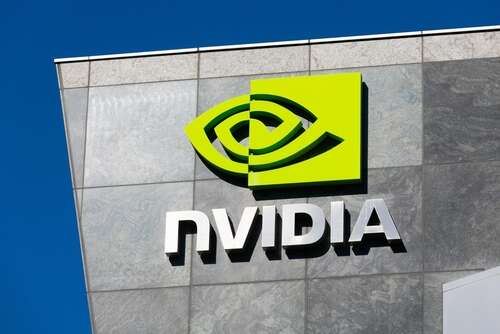
Nvidia has reported year-on-year quarterly revenue growth of 265%. According to the chip giant’s latest earnings announcement, its revenues hit $22.1bn in the fourth fiscal quarter, beating market expectations of $20.4bn. Profits, meanwhile, hit $12.3bn – more than nine times as high as last year, growth that chief executive Jensen Huang attributed to sustained public interest in generative AI.
“Accelerated computing and generative AI have hit the tipping point,” Huang said. “Demand is surging worldwide across companies, industries and nations.”

Nvidia revenues little surprise to AI watchers
Founded in 1993, Nvidia initially specialised in the manufacture of graphics processing units (GPUs.) It has also become one of the world’s leading producers of powerful chips like the H100, harnessed by AI developers to create new and more powerful large language models (LLMs).
Its dominance of this market was underscored by additional announcements in its earnings report. Nvidia confidently predicted that revenue for the current quarter would hit $24bn, surpassing analyst expectations of $22bn. The firm’s valuation has also spiked since the beginning of this year, growing by 40% to $1.7trn and briefly leading the chip giant to exceed the market valuations of Amazon and Google’s parent company, Alphabet.
Indeed, Nvidia’s stock has proven so buoyant as to unnerve market insiders who consider its gains to be too good to be true. This was seemingly proven at the start of this week when its share price briefly plunged by 8.6%. “NVDA’s [Nvidia’s] stock appreciation has been parabolic,” wrote analysts from Bank of America in a recent report. “We think one interpretation of this NVDA move is a mix of fear and greed and indiscriminate investor chase for all things AI.”
Nvidia customers considering alternatives
Nvidia’s success has also spurred competition from its traditional market rivals. AMD, for example, has gone to great lengths in trying to catch up with its rival, buying an AI chip startup in October 2023 and announcing new AI chips themselves in January. OpenAI, a leading customer for Nvidia’s H100 chip, has also been exploring alternatives, with founder Sam Altman making an appearance at an event organised by rival chipmaker Intel.
Indeed, one major concern among analysts about Nvidia’s future prospects is its reliance on GPU sales to Google, Meta, Amazon and Microsoft. While all of these major tech companies have made commitments to scale up their AI infrastructure in the short term, they have also invested heavily in creating their own supply chain of AI processors.






